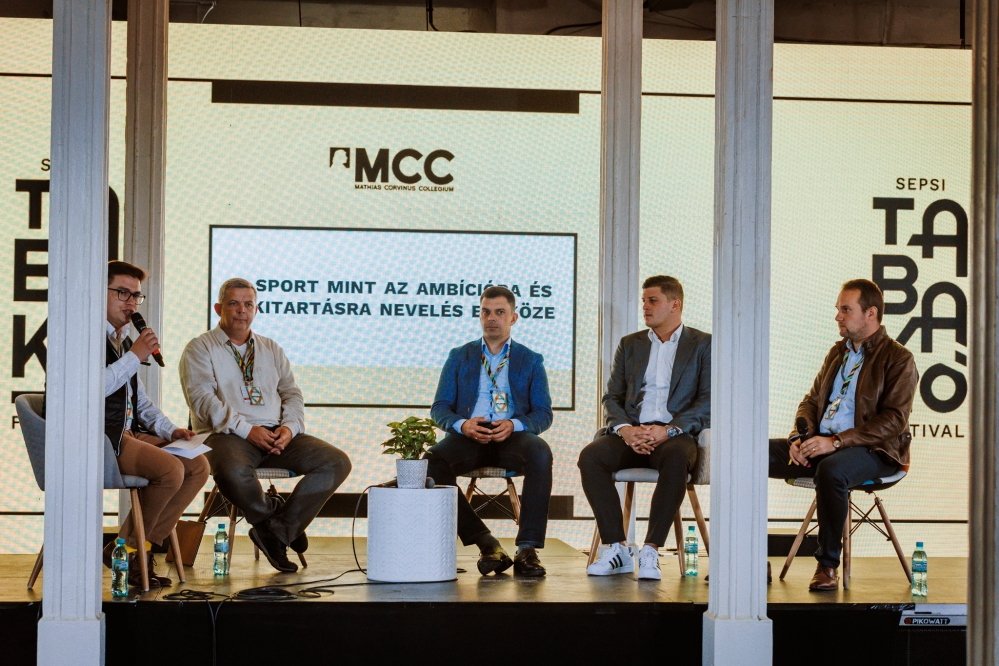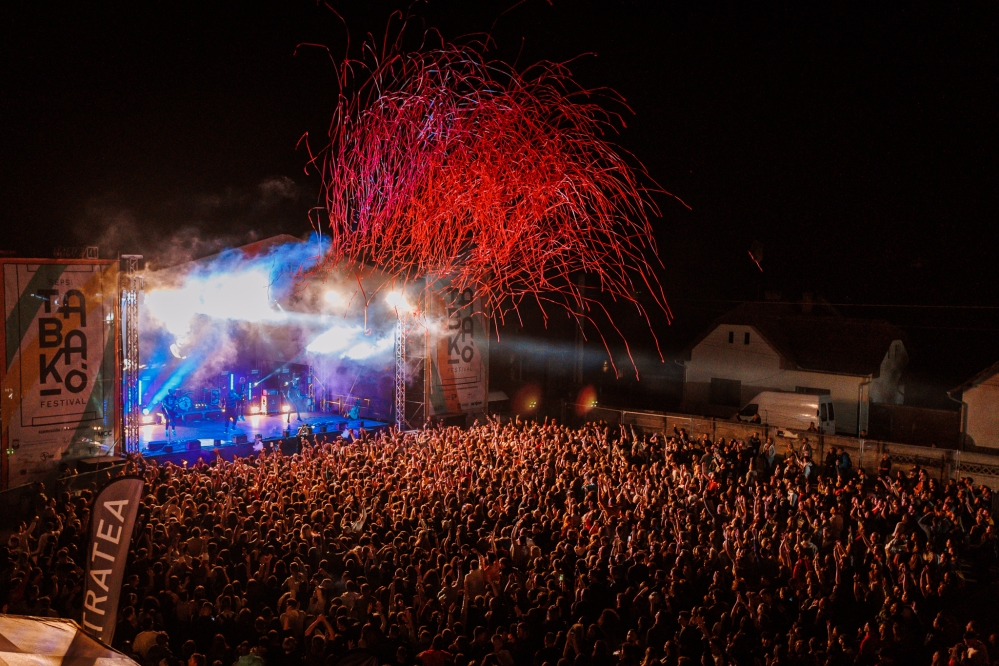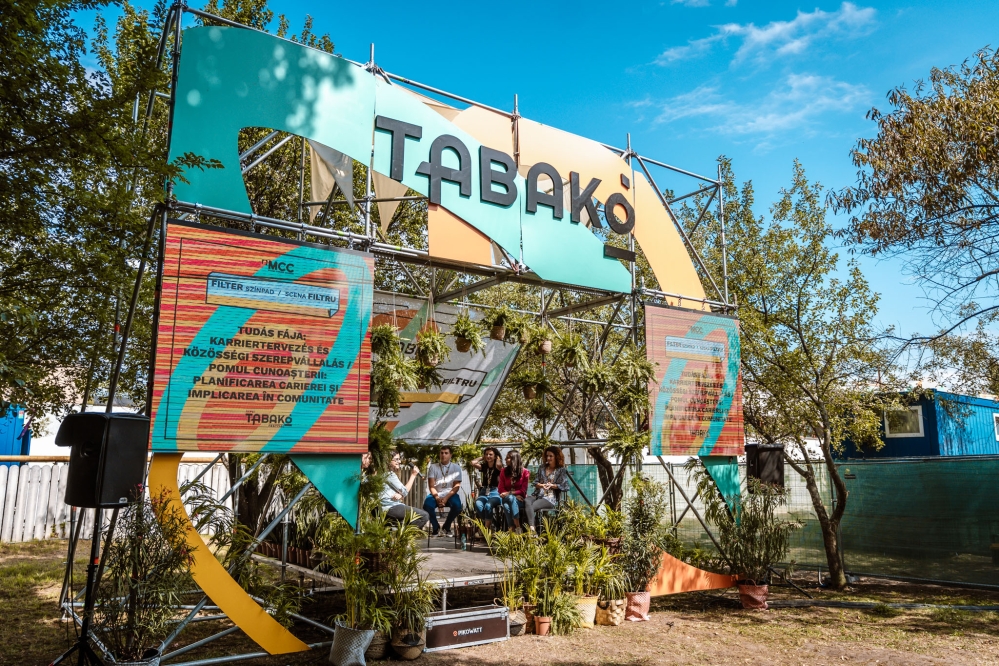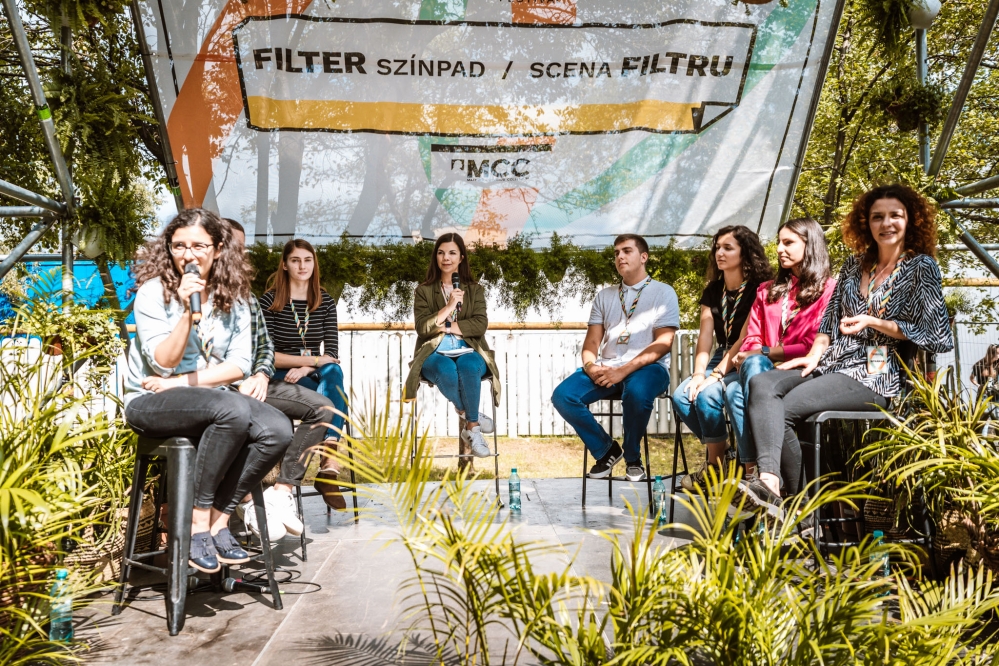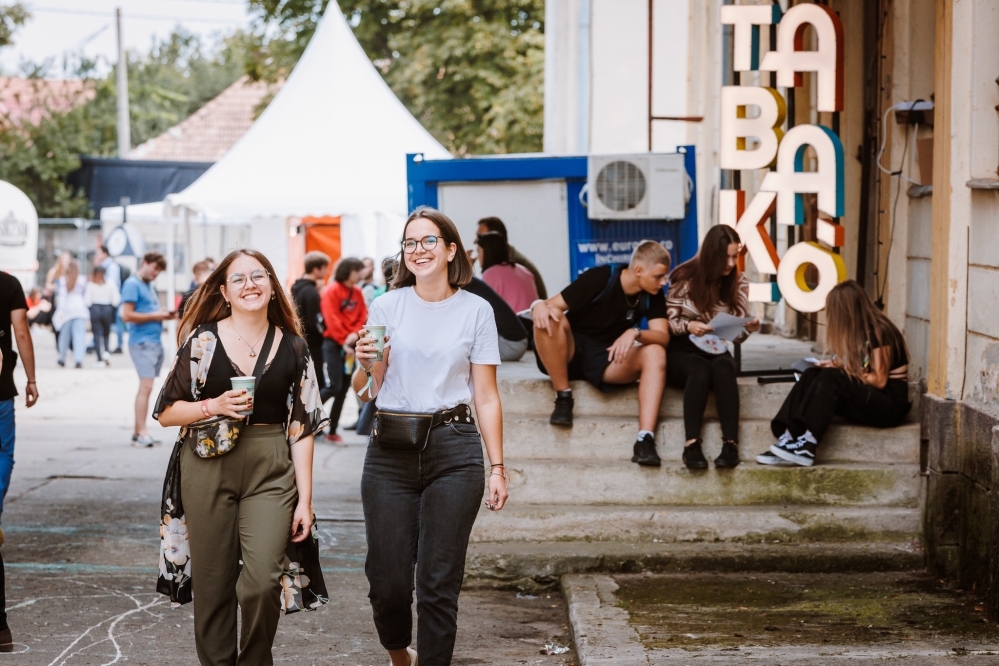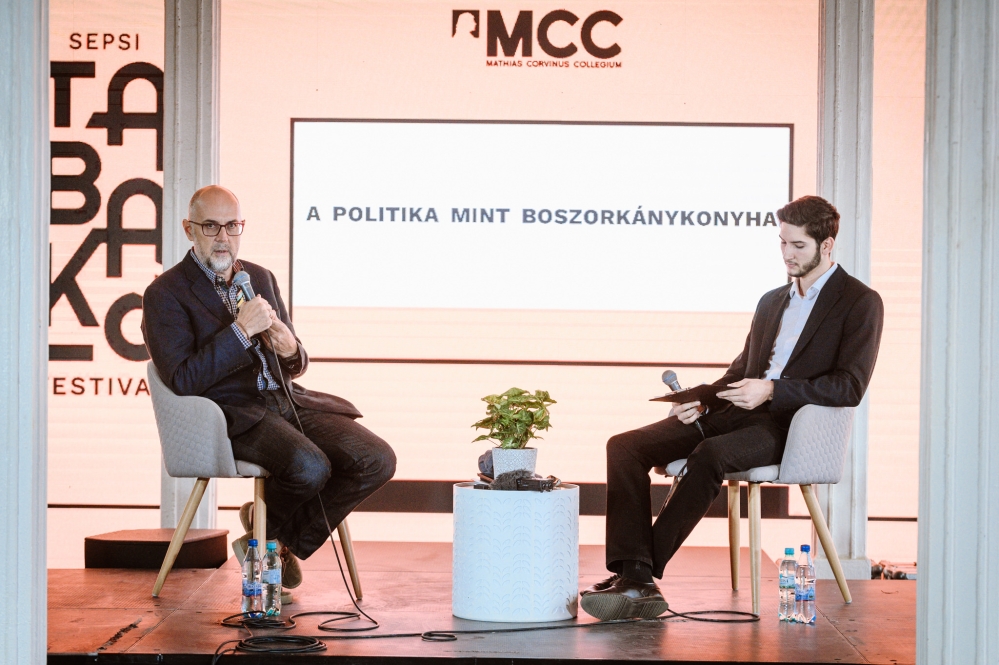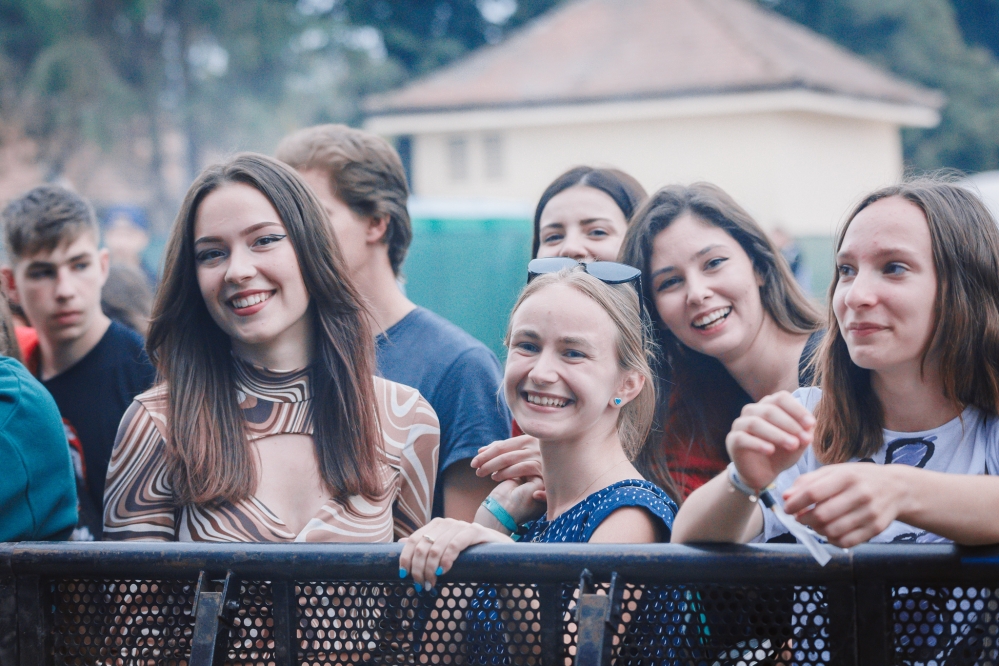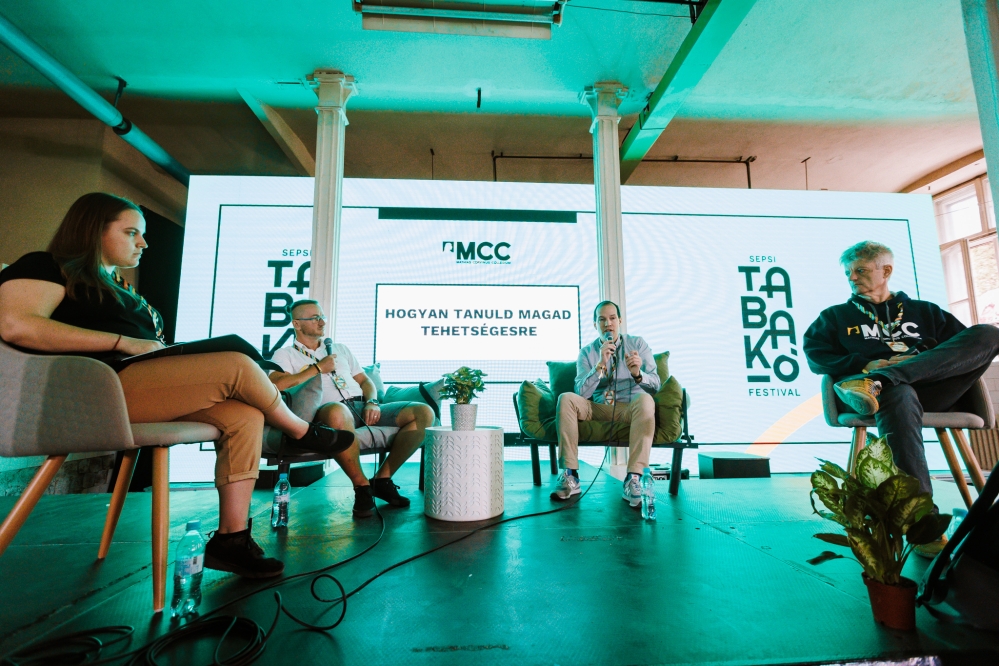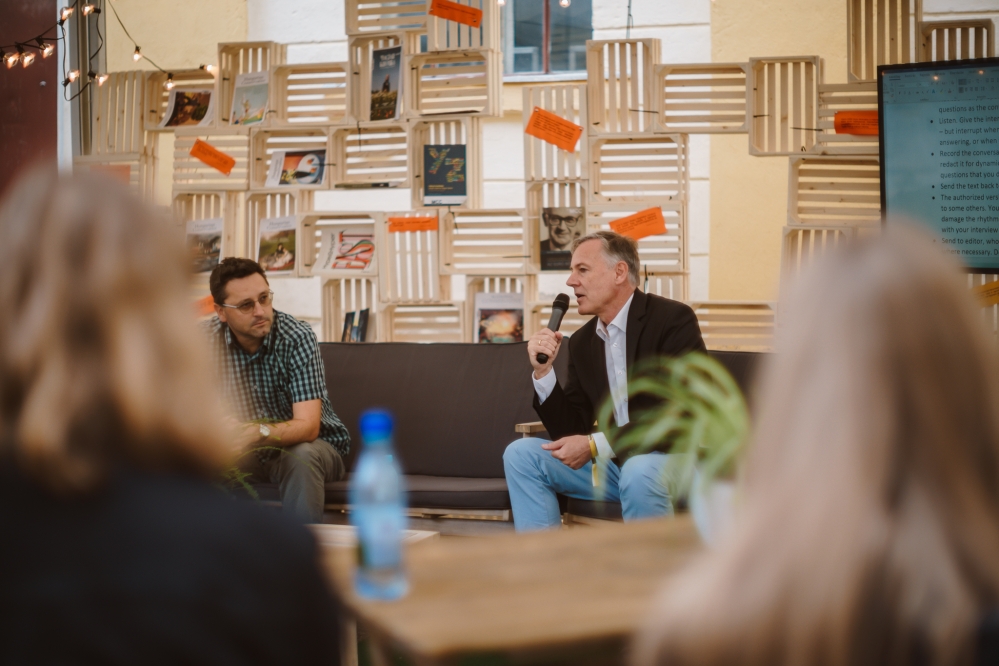Reading time: 4 minutes
The Sepsi Tabakó Festival officially opened with a press conference on Thursday 1 September at the iconic former tobacco factory of Sepsiszentgyörgy (Sfântu Gheorghe). The historic building, unused since 2010, was brought back to life by the locals, with Mathias Corvinus Collegium (MCC) playing a major role in ensuring quality presentations and talks.
The event was divided into three levels, three shifts reminiscent of factory work. The day shift was organized by the MCC and featured professional presentations, athletes, digital innovations and renowned international and Hungarian speakers. The various programs were held in three languages: foreign speakers could be followed in English, while local speakers in Hungarian or Romanian, with the help of simultaneous interpreters available on request during the talks. The second shift was dedicated to concerts: in the afternoon and evening, the tobacco factory was the venue for Hungarian and Transylvanian bands, while the third shift was dedicated to DJs and various music. In addition, there were fairs, art workshops and children's activities.
“One of the aims of the Tabakó Festival is to create a space where young people can feel a sense of responsibility, take on tasks, but also feel free to interact with performers and community leaders,” said Botond Talpas, general director of MCC Transylvania. The former tobacco factory is an important site in Sepsiszentgyörgy, so it was encouraging to see that young people can use it and that the building complex will mean something to this generation. Botond Talpas added that more than 400 students from Sepsiszentgyörgy and the region are involved in the MCC’s talent management programs, and many of them participated at the festival as moderators, volunteers and organizers. Tabakó was a great way to close the summer and start the school year.
After the opening, visitors had the opportunity to tour the festival and the factory. During the three-day event there were three music venues, two performance spaces, more than 30 professional performances, 24 concerts, 25 DJs and a lot of free activities.
On the first day of the festival, US guest speaker Stephen Sholl gave a lecture in English on the role of architecture in shaping national identity, followed by a discussion on the war in Ukraine with Dr Rajmund Kiss (Head of the Center for Diplomatic Studies, MCC), Zalán Klauda (MCC Economics School) and Dr Béla Gergely Rácz (Babeș-Bolyai University).
The next day, Milán Constantinovits (Deputy Director-General for Professional Affairs, MCC), János Setényi (head of MCC Learning Institute) and Mihály-Gábor Both, a mathematics teacher from Sfântu Gheorghe, started the lectures, followed by Károly-Eduárd Novák, Minister of Sport, Dániel Gyurta, Olympic champion swimmer, Zoltán Miklós, Member of Parliament and István Barna Jakab, County Council President, who discussed sport and ambition. Afterwards followed a lecture by Dr Huub Ruël, economist and guest lecturer at the MCC, and the audience had the opportunity to meet with Hunor Kelemen, Deputy Prime Minister and President of the Democratic Alliance of Hungarians in Romania. Meanwhile, at another venue of the day shift, Enikő Laczikó, State Secretary (Office of Interethnic Relations), Szabolcs Nagypál (Head of MCC Law School), Sándor Kovács, Unitarian Bishop, and István Antal (Head of MCC Roma Talent Program) shared their thoughts in interesting discussions.
On the last day of the event, Milan Constantinovits, Dr. Bálint Markó (vice rector of Babeș-Bolyai University) and Dr. Márton Tonk (rector of Sapientia University) had a discussion with Árpád Antal, mayor of Sfântu Gheorghe, followed by a presentation on migration by Márk Vargha and Blanka Kovács (MCC Migration Research Institute). Senator Lóránt Antal and Dr. Máté Litkei (MCC Climate Policy Institute) discussed about a sustainable future, while journalists Boris Kánoky and Ed West spoke on objective reporting and Dr. Calum T. M. Nicholson on the impact of social media.
The festival was organized by the MCC, the Municipality of Sepsiszentgyörgy, the Kovászna County Council, the Kónya Ádám House of Culture and VIBE Festival.
